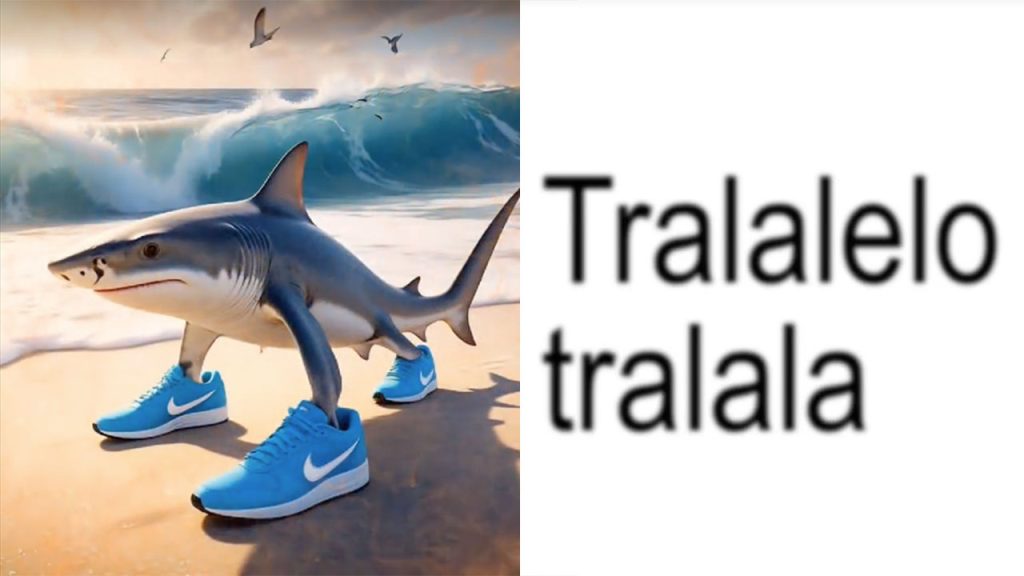Stories are powerful. We use them for marketing. We tell them during interviews. We use them to pass knowledge and disseminate histories. The oral tradition is as old humans. Stories bind us. Stories break us. Stories reform us. Stories connect us. What happens though when the internet, social media platforms, and AI are used to tell the stories, shape the tales, and curate content? Are these memes, reels, sounds, and clips have the same power as the longform story or our human books?
Not too long ago, I would have said, “Nope. Not possible.” I would like to make the case for “brain rot” (or “brainrot” depending on which side of the pond and which online community you choose to align with). Oxford University Press named “brain rot” as the 2024 Word of the Year and defines it as “the supposed deterioration of a person’s mental or intellectual state, especially viewed as the result of overconsumption of material (now particularly online content) considered to be trivial or unchallenging.” This year, my REPAIR Lab students have taught me that brainrot can be a shortform story capable of engaging and connecting others.
We developed a new rhythm in the REPAIR Lab this year. The deal is I tell them my travel stories, fun phrases in other languages, and “real” vocabulary. (Today’s vocabulary word of the day was “preempt”.) In return, they share their stories and teach me brainrot. To this purpose, we made a Brainrot Box in the REPAIR Lab. They drop in any thing they think I should know or will most likely hear.

Some contents of the Brainrot Box. (Photo by @bookoni)
Today, stories flew about people’s encounters with the “Tralalero tralala” meme. If “Tralalero tralala” sounds like gibberish to you, you are absolutely correct. It is pure gibberish. It is part of a trending wave of AI-generated Italian brainrot that has been spreading across TikTok this spring.
These absurd AI-generated animal mashups against a background of gibberish-sounding music is completely pointless and nonsensical. I find them to be utterly incomprehensible creatures worthy of the boggart banishing spell “Riddikulus” from Harry Potter. To the students, this is just another evolution in brainrot. They all know it is silly, but appreciate it for its weirdness. This aligns with President of Oxford Languages Casper Grathwohl’s thoughts:
I find it fascinating that the term ‘brain rot’ has been adopted by Gen Z and Gen Alpha, those communities largely responsible for the use and creation of the digital content the term refers to. These communities have amplified the expression through social media channels, the very place said to cause ‘brain rot’. It demonstrates a somewhat cheeky self-awareness in the younger generations about the harmful impact of social media that they’ve inherited.”
Brainrot is a communication wild card. Working with the tail end of millennials and a growing number of Gen Z with their Gen Alpha siblings has my brain colliding against decades of internet lore that I never heard of. I’ve lived abroad and in areas without internet. My students are always shocked with how little I know about online worlds. To them, the internet has always been there. It is easy to reference something because it is all online. They all have access to all the background needed to process shortform content quickly, so the longform story I am familiar with is unnecessary for them. They have community in shared internet lore and the self-awareness to know “how dumb” (their words) brainrot is. So when they talk about memes, sounds, reels, vines (it still shows up in conversation as a precursor to newer trends even though it is obsolete), and videos, they are sharing their stories and thoughts through these shortform formats. Brainrot and its associated backstories and spin-offs become the bridges that connect our very different styles. It is a powerful and engaging format.
Resources
Oxford University Press. (2024 December 2). ‘Brain rot’ named Oxford Word of the Year 2024. https://corp.oup.com/news/brain-rot-named-oxford-word-of-the-year-2024/
Fandom Movies Community. (n.d.). Harry Potter Wiki: Boggart-banishing spell. https://harrypotter.fandom.com/wiki/Boggart-Banishing_Spell
Literally Media Ltd. (2025 April). What does the ‘Tralalero Tralala’ meme mean? The origins of the Italian Brainrot TikTok trend featuring a shark wearing Nikes explained. Know Your Meme. [KYM]. https://knowyourmeme.com/editorials/guides/what-does-the-tralalero-tralala-meme-mean-the-origins-of-the-italian-brainrot-tiktok-trend-featuring-a-shark-wearing-nikes-explained#

